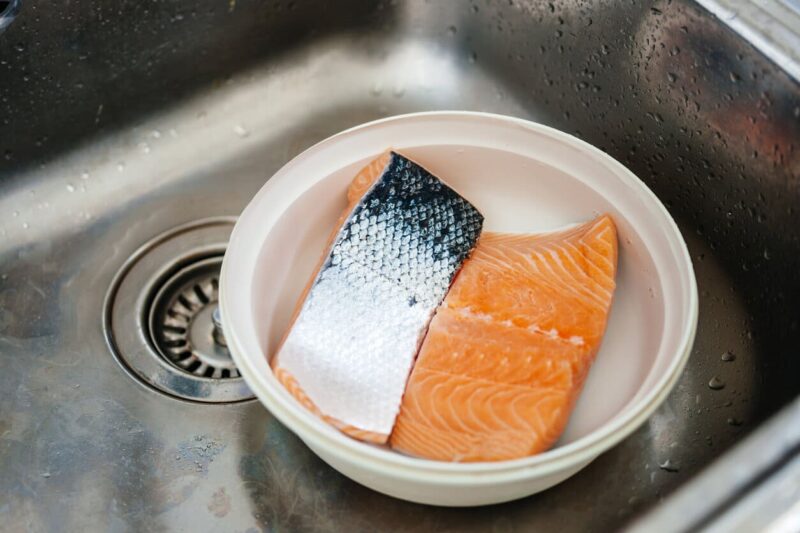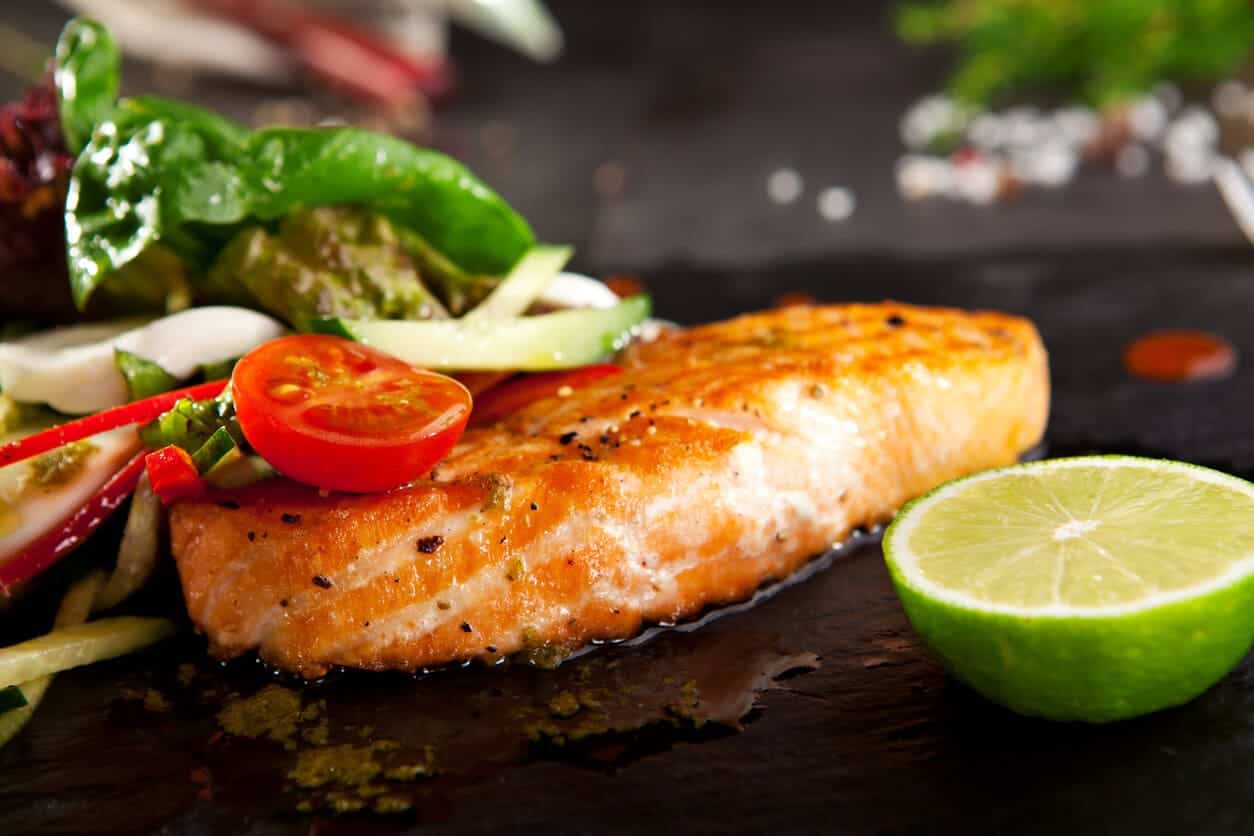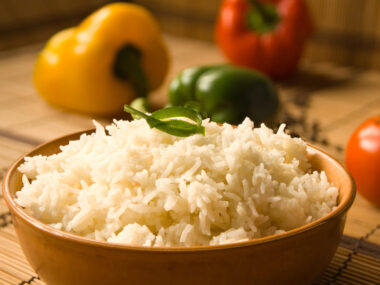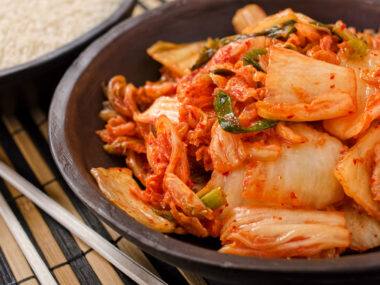Salmon is one of the healthiest and most nutritious types of fish. It contains omega 3 fatty acids, zinc, iron, vitamins D, B12, B6, and many other essential nutrients.
However, to take full advantage of these nutrients you need to prepare and cook the salmon in the right way.
According to the USDA, raw fish including salmon, seafood, poultry, and meat should not be rinsed before cooking because if they contain any harmful bacteria, it can easily spread on the other surfaces and foods.
There are different opinions about whether salmon should be rinsed before cooking. My opinion is that you can rinse salmon under a low flow of cold running water if you notice any remaining scales, fish guts, or other impurities.
However, you should be aware that rinsing salmon will not destroy all bacteria. On the contrary, it will spread all over the salmon and other surfaces and foods that can lead to food poisoning.
Meaning, you should be careful where you buy your salmon to avoid any unwanted side effects. Always buy a portioned and packed salmon because they are usually cleaned.
If you have bought a whole salmon then you will have to clean its insides and scales and rinse under a low flow of cold running water. And that is the only washing you should do.
Pat it dry with paper towels and then you can cut or use the whole salmon and prepare it for cooking. After you have cleaned and washed the salmon, clean the surfaces as well as kitchenware you have used with an antibacterial cleanser.
Do You Rinse Salmon?
No, you don’t rinse salmon.
According to the USDA and other food safety experts, it is not recommended to rinse raw fish, seafood, raw meat, and poultry.
When rinsing fish or meat bacteria found in them can easily spread on other surfaces and foods which can lead to food poisoning and illness.
Rinsing salmon will not clean the bacteria from its surface. On the contrary, it will spread it further. So the best way to kill bacteria and prepare a safe for eating salmon is to cook it until its internal temperature reaches 145°F (62,8°C).
How To Cook Salmon?
Salmon is usually found as a whole fish, fillets, and steaks. There are a few ways you can prepare perfectly cooked salmon without overcooking or undercooking it.
You can grill, bake, pan-fry, broil or poach it until it becomes nice and flaky but a healthier way to cook salmon without using too much fat is to bake it in the oven.
Just place the salmon on a baking pan with the skin side down and coat it with some olive oil. Season it with freshly ground black pepper, kosher salt, and herbs of your choice.
Some of the herbs which can enhance the salmon’s flavor include parsley, dill, basil, thyme, sage, rosemary, or bay leaves. Bake the salmon in the oven at 425°F (218°C) for 12-15 minutes or until its internal temperature reaches 145°F and becomes tender, moist, and creamy.
If you prefer salmon with skin, you can pan-fry it to get crispy skin. Then, dry the salmon with some paper towels to remove the moisture and season it with kosher salt and freshly ground black pepper.
Put the salmon with the skin side down into a pan with some hot oil and cook it for about 5 minutes. Then, carefully turn it on the other side and cook for about 30 seconds.
If your salmon is thicker than 1 inch, it will need more time to cook. Also, check the temperature of the salmon and when it reaches 145°F remove it from the pan let it rest for 5-10 minutes, and serve!
How To Clean Salmon With Lemon?
You can use lemon juice to clean the salmon, neutralize the smell and kill some types of dangerous bacteria. Citric acid from the lemon juice is changing the protein’s structure and it is making the salmon nice and tender.
Squeeze one lemon in a bowl of cold water and put the salmon inside. After 5-10 minutes take it off the bowl and pat dry with paper towels to remove the remaining moisture.
Season the salmon with salt, ground black pepper, and herbs to your taste, and it is ready to cook. Just make sure not to leave the salmon in the bowl for more than 10 minutes, because you will get a tough and dry salmon with lemon flavor.
Do You Wash Salmon Before Marinating?
No, you don’t wash salmon before marinating.
A marinade is used to soften its texture, tenderize and enhance its flavor. But washing salmon before marinating is not recommended because it doesn’t kill the bacteria. It only spreads them all over the nearby surfaces and foods which can lead to food poisoning.
Only cooking the salmon properly will kill the harmful bacteria. There are many different marinades you can use to marinate salmon.
The marinating time depends on the size of the salmon as well as the ingredients used in the marinade. You can marinate salmon in acid-based marinades in the refrigerator for a minimum of 30 minutes to a maximum of 6 hours. If you are marinating the salmon longer it will become soft and mushy.
After marinating, your salmon is ready to cook.
Should You Rinse Fish Before Cooking?
No, you should not rinse fish before cooking if you have bought a packed and portioned fish. However, if you notice that there are some remaining scales, intestines, or other impurities you can rinse it under a low flow of cold water. Then, pat dry with paper towels to remove any excess water.
If the fish is cleanly handled and refrigerated at a proper temperature there is no need to rinse it because it can alter the fish’s flavor. However, if you do rinse it, don’t forget to clean the surfaces and kitchenware with an antibacterial cleanser to avoid any food poisoning.
Summary
There are different opinions about washing salmon before cooking even if it doesn’t destroy the harmful bacteria that can be found in the salmon.
Therefore, it is more important to cook the salmon at the recommended temperature to destroy all the potential bacteria. And make it safe to eat. Because only cooking kills bacteria.
However, it is also important to buy salmon that has been properly stored, refrigerated or frozen and doesn’t have any unpleasant smell.
Do you wash salmon before cooking? What is your experience with cooking salmon? Comment down below and let’s chat!



